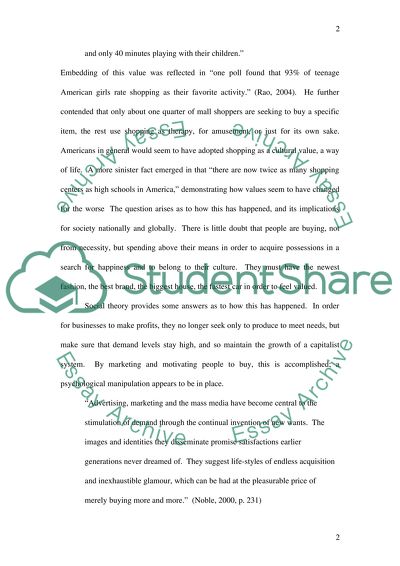Cite this document
(“Shopping as an American Culture Value Essay Example | Topics and Well Written Essays - 2000 words”, n.d.)
Retrieved from https://studentshare.org/miscellaneous/1518773-shopping-as-an-american-culture-value
Retrieved from https://studentshare.org/miscellaneous/1518773-shopping-as-an-american-culture-value
(Shopping As an American Culture Value Essay Example | Topics and Well Written Essays - 2000 Words)
https://studentshare.org/miscellaneous/1518773-shopping-as-an-american-culture-value.
https://studentshare.org/miscellaneous/1518773-shopping-as-an-american-culture-value.
“Shopping As an American Culture Value Essay Example | Topics and Well Written Essays - 2000 Words”, n.d. https://studentshare.org/miscellaneous/1518773-shopping-as-an-american-culture-value.


